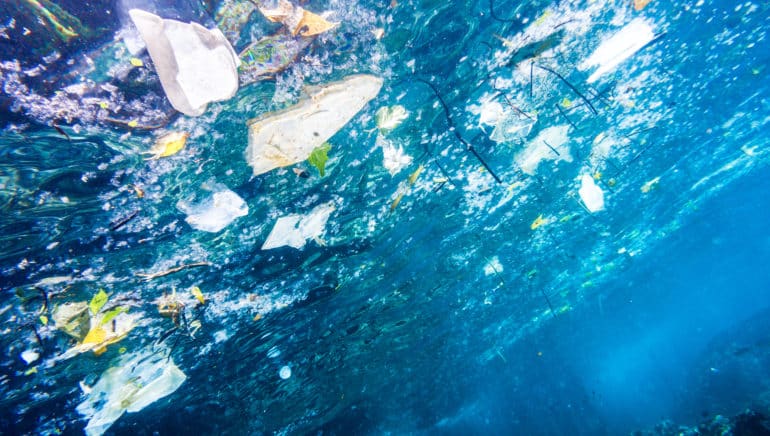Mr. McGuire: I just want to say one word to you. Just one word.
Benjamin: Yes, sir.
Mr. McGuire: Are you listening?
Benjamin: Yes, I am.
Mr. McGuire: Plastics.
Benjamin: Exactly how do you mean?
Mr. McGuire: There’s a great future in plastics. Think about it. Will you think about it?
The Graduate is a US film classic of the 1960s. The bored Mrs. Robinson seduces the college graduate Benjamin. In one scene, one of the protagonists of the movie, Mr. McGuire, explains the future to the main character, Benjamin: plastic. Back then, in the mid-1960s, “plastic” was a new raw material that promised previously unimaginable opportunities. Since the 1960s, plastic production has increased from about 2 million tonnes per year to about 322 million tonnes. This means that plastic production has increased three times faster than the US GDP – there was indeed a great future in plastics!
One of the big advantages of plastic as raw material is at the same time one of its biggest drawbacks from an ESG perspective. Plastic can assume almost any shape and is very durable – at the expense of the global oceans. “Any shape” means that we are not only talking about large parts that can be easily collected, but also about small parts (especially in the form of packaging material, which the largest part of global plastic production is used for) and particles. For example, think of peelings or toothpastes that contain so-called microplastics so as to produce friction.
Durable means that plastic does not simply disappear, but it remains in existence for many, many years. Waiting this one out is therefore not a solution. This prompts the question of how to handle plastic. Of the 6.3bn tonnes of plastic that have been produced since the 1950s, about 9% has been recycled and 12% has been burnt. This means that almost four fifths of all the plastic ever produced still exist. This translates into a landfill the size of Manhattan.
Onto our plates via detour
Not that much really, one might think! If only it were that simple. A large part of the plastic does not end up in managed landfills, but anywhere. And on our planet, “anywhere” usually means in the sea. As a result of light and decomposition, plastic is broken down and ends up in marine animals and thus, via detour, in our stomachs. Something similar is true on land, by the way, where traces of plastic can sometimes be found in honey.
Nowadays it is impossible to think of a life without plastic in many of its different forms of manifestation. For example, just think of disposable gloves in the operating theatre, insulation material in residential building, or condoms. How to handle plastic in a responsible way, then? Different strategies will be necessary. In some cases, we will have to find a substitute for plastic, or indeed avoid it altogether; that includes bans, taxes, and other statutory interventions. In other cases, recycling will be the way to go. One approach will be to deposit plastic waste at designated landfills rather than discard of it anywhere and without control. Another approach may call for the involvement of nature as part of the solution. For example, plastic-eating microbes are a case in point (N.B. these do not only exist as genetically engineered organisms.)
We all have to contribute to a comprehensive and meaningful strategy as far as the handling of plastic is concerned. “We all”, that means the community of states, companies, and consumers. According to a study by Helmholtz Institut, of the 10mn tonnes of plastic that end up in the sea every year, about 90% find their way there via only ten rivers. Eight of them are located in Asia, and two in Africa. This means that plastic waste is not the least a problem of emerging economies. This also explains why so many different countries like Rwanda, France, Kenya, and Bangladesh have banned plastic carrier bags. Companies increasingly regard the waste they create through their products as part of their corporate responsibility. For example, the giant groups in the consumer goods sector that have started (often under public pressure) to develop far-reaching strategies to avoid waste across all the aforementioned areas.
This ESG Letter is meant to provide you with an overview of the kind of ESG problems that are associated with plastic and of the ways we deal with these problems as sustainable investors. We are convinced that companies have to – and can – contribute significantly to solving the plastics problem. The objective of our ESG Letter is to analyse how, and how well, some companies are already doing that.

Mag. Gerold Permoser
*ESG stands for Environmental, Social and Governance“ – These are the three broad categories according to which companies are examined in sustainable investment.

